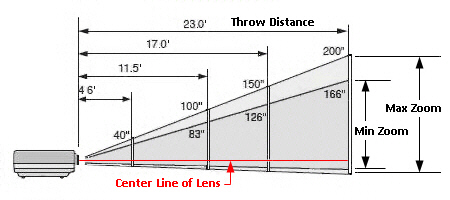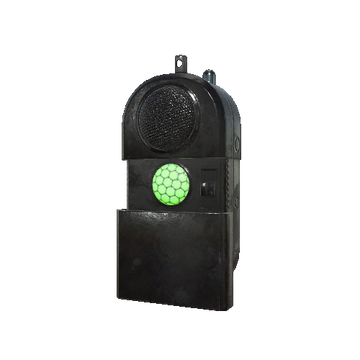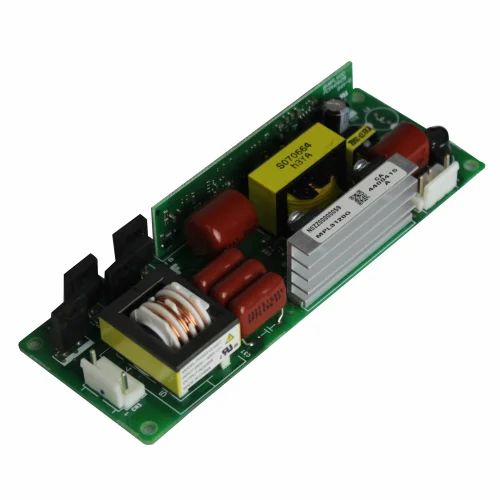Unmasking the Culprit: What is the Most Common Cause of a Dishwasher Leaking?
Introduction
Washing dishes is a mundane chore that everyone is required to take part in. But what happens when your trusted dishwasher starts to leak? Frustration settles in. This article will look into what typically causes a dishwasher to leak, how to spot the signs and ultimately, how to prevent it.
Why is My Dishwasher Leaking?
Is your dishwasher oozing water? Don't despair - it might be due to one of several common causes, each of which can be identified and often resolved with a bit of detective work. Here's what might be behind your dishwasher's leakage issues:
1. Faulty Door Seals: These crucial components create a watertight boundary between the dishwasher interior and your kitchen. When damaged, they may let water sneak out.
2. Detergent Overuse: Too much detergent can lead to excessive soapy foam, which might force its way past the dishwasher door. The optimal detergent amount can lead to the best dish cleaning results without causing leakage.
3. Worn-Out Water Inlet Valve: This key component controls the amount of water entering your dishwasher. If it's defective or not turned off properly, an overflow and subsequent leak could occur.
By thoroughly examining these elements, you might get to the bottom of your dishwasher's leaky escapades and go about resolving it.
What Role does the Door Seal Play in Dishwasher Leaks?
The dishwasher’s door seal, or gasket, is a fundamental part of its design, serving to block the escape of water during operation. When this seal suffers damage, its water-blocking efficiency declines, and leaks may occur. In this context, we must understand the significance of the door seal, how to identify issues with it, and steps to maintain it.
Role of the Door Seal
- The door seal functions as the crucial water barrier between the dishwasher's interior where the washing occurs, and the kitchen. Its main job is to keep water locked inside.
Identifying Problems with the Door Seal
- Regular checkups are essential for any dishwasher’s longevity. During these examinations, focus on the door gasket, looking for signs of wear, tears, or other forms of damage. Even minor faults can cause significant leaks.
Maintaining the Door Seal
- Replacing the door seal as soon as wear or damage is identified is a proactive step towards maintaining a leak-free dishwasher. A statistic from Home Advisor mentions that the average cost to repair a dishwasher door gasket ranges between $150 - $300. However, regular seals replacements could save costs in the long run by preventing costly water damage.
In conclusion, understanding and maintaining the door seal is pivotal in preventing dishwasher leakage. Regularly checking this integral part, identifying potential issues, and making immediate replacements can help ensure a dishwasher's efficient, leak-free operation.
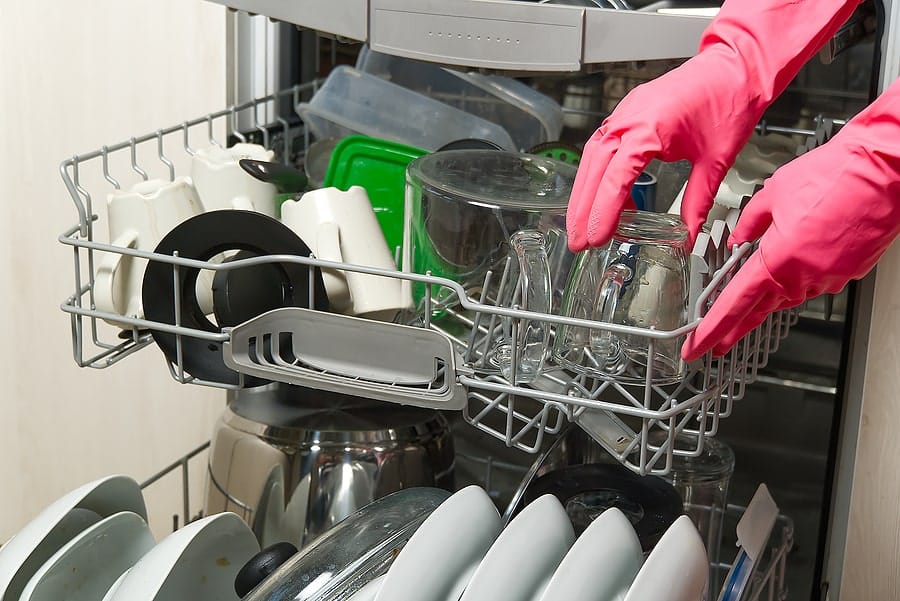
How does Overuse of Detergent Trigger Dishwasher Leaks?
Dishwasher leaks can turn your regular cleaning routine into chaos, and they often stem from something as simple as overusing detergent. Below, we dissect how excessive detergent usage can lead to an overflow and eventual leaks:
The Overflow Syndrome
- Detergent Usage: Many believe that the more detergent used, the cleaner the dishes will get. However, this is far from true. Overuse of detergent can cause a surplus of soapsuds, which doesn't lead to cleaner dishes but instead leads to an overflow.
- Soapsud Escape: As the number of soapsuds increases, they begin to escape through the dishwasher door. This escape results in the formation of leaks.
Judicious Detergent Usage
- Appropriate Measurement: Always use the recommended amount of detergent for your specific dishwasher model and the size of the load. More isn't always better in this context. Following the manufacturer's instructions can significantly minimize leak triggers.
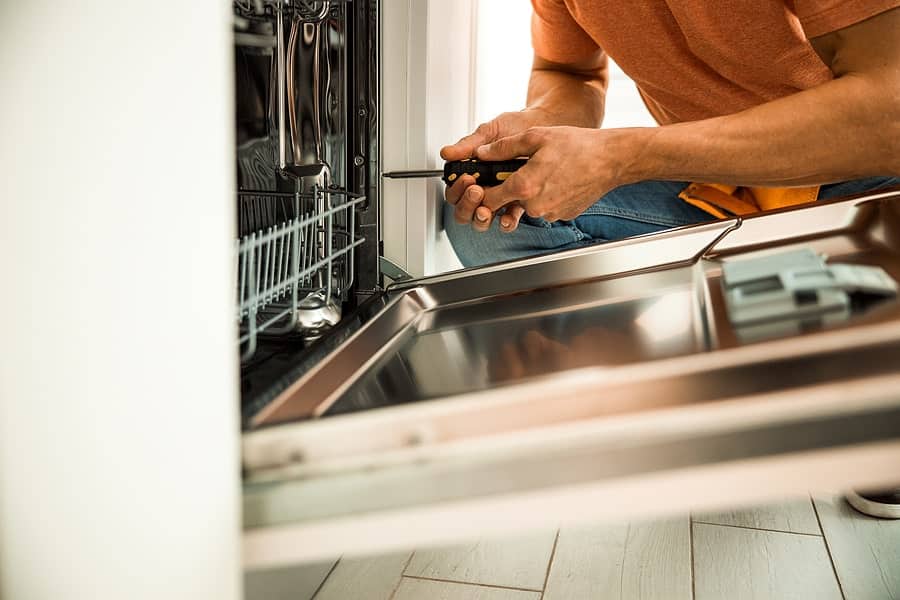
The Role of the Detergent Dispenser
- Dispenser Condition Check: It can be easy to overlook, but a cracked or clogged detergent dispenser is another potential cause of leaks. Regular checks can help in preventing an unnecessary build-up of detergent, reducing the risk of leaks.
Some stats to keep in mind:
- Studies suggest that around 57% of dishwasher users use more detergent than necessary.
- Misuse of detergent is one of the top three causes related to dishwasher leaks.
Understanding and rectifying detergent usage can play a pivotal role in combating dishwasher leaks. Therefore, it's recommended to adjust your habits accordingly and to pay regular attention to the detergent dispenser's condition. Visual elements like measuring cups or built-in dispensers can help ensure you're using the correct amount of detergent every wash load.
Can A Worn Out Water Inlet Valve be the Cause of a Dishwasher Leak?
Could a worn-out water inlet valve be the instigator of your dishwasher leak? Indeed, it very well could.
Here's how a faulty water inlet valve can cause leakage:
- Function of the Water Inlet Valve: This crucial component directs the flow of water into your dishwasher. Its role is essential for the machine’s proper operation.
- Malfunction: When this valve is damaged or wears out, it may not shut off entirely. This malfunction leads to a troubling overflow within the dishwasher, an overflow that seeks escape path, resulting in a leak.
How to verify its condition? Here are some steps to follow:
1. Observation: Look at the run cycle when your dishwasher is filling up.
2. Listening for Humming Sounds: If the water inlet valve is in good condition, there should be a distinguishable humming sound. The absence of this noise signifies an issue.
- Silence: In case of no sound, there are two possibilities. Either the valve has become defective, or it is not receiving sufficient power.
Identifying the water inlet valve's ailment can determine the course of action:
- Cleaning: In certain instances, the valve can be cleaned to restore its functionality.
- Replacement: However, in severe cases of damage, a replacement might be necessary to curb the leak effectively.
Therefore, do not disregard the state of your water inlet valve. It could hold the solution to eliminating the nuisance of a leaking dishwasher. Regular checks will ensure it functions effectively, keeping leakage problems at bay.
What Steps Can I Take to Prevent Dishwasher Leaks?
When it comes to preventing leaks in your dishwasher, a proactive approach is undoubtedly the most effective. Here are some potentially game-changing steps to consider:
1. Regular Inspections: The importance of routine checks for your dishwasher cannot be overstressed. This will help identify potential wear and tear, helping you address the issue before it escalates to a full-blown leak.
2. Gasket Maintenance: Remember, the door seal, aka the gasket, plays an integral role in preventing your dishwasher from leaking. It's advisable to check it regularly and replace it if worn out.
3. Measured Use of Detergent: Unbeknownst to many dishwasher users, using excessive detergent doesn't necessarily lead to cleaner dishes. In fact, it could cause your dishwasher to overflow with soapsuds and leak. Therefore, using just the right quantity of detergent – as recommended by your dishwasher manufacturer – is a must.
4. Water Inlet Valve Check: The condition of the water inlet valve can significantly influence whether your dishwasher leaks. If it's damaged or isn’t shutting off properly, your dishwasher could overflow and consequently leak. To check its status, listen for a humming sound when your dishwasher is filling up. If there's no sound, it's advisable to clean or possibly replace the valve.
5. Schedule Professional Maintenance: Carrying out regular DIY checks is great. However, it's equally vital to schedule professional maintenance for your dishwasher. This will ensure it's functioning optimally, reducing the likelihood of unforeseen leaks or damages.
In conclusion, preventing dishwasher leaks boils down to consistent maintenance and taking the necessary preventive measures. By treating these steps as a specialized routine, you can sidestep the need for extensive water damage repairs while also significantly extending the lifespan of your dishwasher.
Conclusion
A leaking dishwasher can be more than an inconvenience. By knowing what to look for and keeping the important components in check, you can prevent extensive water damage and costly repairs. Remember, regular maintenance is key to a long-lasting, leak-free dishwasher.
Related FAQs about what is the most common cause of a dishwasher leaking
What is the first thing to check when a dishwasher starts leaking?
When your dishwasher begins to leak, the first suspect should be the door seal or gasket. A worn-out, damaged, or malfunctioning door seal could let water seep out, making it essential for immediate checkup and maintenance.
How costly can repairs be for common causes of dishwasher leaks?
The cost of repairs can vary widely depending upon the issue. For instance, replacing the dishwasher door seal can cost between $150 - $300. It's best to get a quote from a professional to get a precise idea.
Can I fix a leaking dishwasher myself or should I always hire a professional?
While some issues like overuse of detergent or a worn-out door seal can be addressed by you, complex issues such as a malfunctioning water inlet valve may necessitate a professional's expertise. Regular maintenance can prevent major problems.



